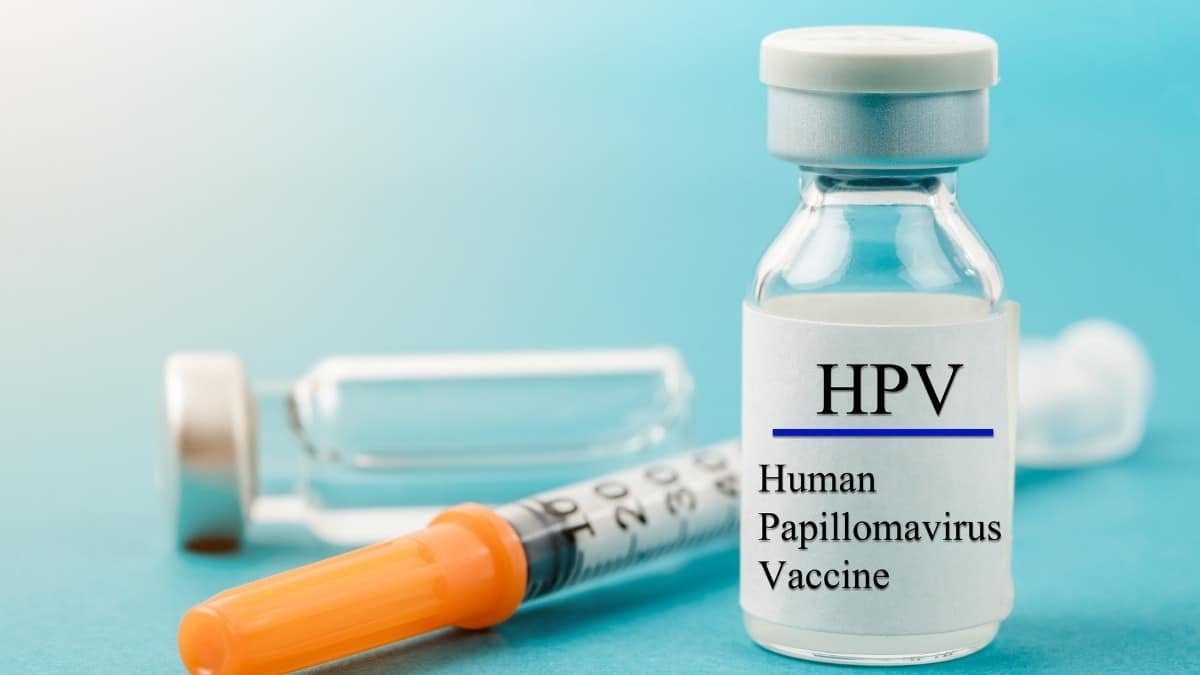For many, HPV is asymptomatic. But can it be transmitted through skin-to-skin contact?
HPV infection spreads through intimate skin-to-skin contact, says the CDC. Intimate skin-to-skin contact means vaginal, anal, or oral sexual intercourse with an infected person.
HPV is more common than you think. Finish reading this article to know-how.
The CDC estimated that around 79 million Americans are infected with HPV, most of them are teens or early 20s. In the United States, HPV results in 33,000 cancers every year in both men and women.
Not only this, 95% of anal cancers are a result of the infection, and most of these occur by one type of HPV. 70 % of cases are caused by HPV-16 and 18.
We have the vaccine but no cure that, too, doesn’t protect against all the strains.
The first vaccination against the infection was introduced in 2006. Since then 64% reduction in vaccine-covered HPV strains has been observed, especially in teenage girls in the United States.
Human Papillomavirus
Human Papillomavirus(HPV) is a kind of viral infection that gets transmitted through skin-to-skin contact. There are 100 different types of HPV, out of which more than 40 are transmitted through sexual intercourse and can affect the genitals, mouth, or throat.
Different types of HPV show various complications; some types of infection may not cause any health problems. But some types of HPV cause genital warts and even the cervix, anus, and throat.
As per the NCBI, episodes of sexual dysfunctions and depression have been frequently noticed among HPV patients. Even though depression is the cause of sexual dysfunction, alone HPV infection can lead to sexual dysfunction without depression symptoms.
Shop Now!
Generic Medicines for Sexual Dysfunction: Sildenafil Citrate (Cenforce), Tadalafil (Vidalista), Vardenafil (Levitra).
What Is The Root Cause Of HPV?
HPV is a virus caused by intimate skin-to-skin contacts, such as sexual intercourse or other contact forms with the genitals. The infection causes warts on the hands, feet, and other genital areas of the body. Some of its strains can increase the risk of developing various types of cancers, but not all.
HPV is a sexually transmitted disease; therefore, people who are sexually active and that too with different-sex partners are at high risk of developing HPV. Some infected individuals are asymptomatic; no symptoms of the virus are noticeable.
Some HPV infections are resolved by themselves, and some remain dormant that may reoccur and infect your sexual partner.
HPV can be transmitted to newborn infants during birth, infecting the genital or respiratory system. The strains of HPV causing warts are different from the group of strains causing cancer.
What Are Risk Factors For Acquiring HPV?
Some decisions can cause infection, avoid taking them, such as:-
- Having multiple sex partners
- Having a partner who had several sex partners
- A weak immune system, for example, due to HIV or having an organ transplant.
- Skin damaged area
- Having direct contact with warts or HPV infected surfaces
Also Read: Safe Sex Education: Making Healthy Decisions
How Is HPV Diagnosed?
On experiencing warts or lesions, your doctor may recommend you to undergo specific tests to confirm the presence of the disease. Diagnosis for HPV varies with gender.
HPV In Women
The US Preventive Services Task Force(USPSTF) recommends women undergo their Pap test or Pap smear at the age of 21 despite the onset of sexual activity.
A Pap smear involves a sample of cells from the surface of the cervix or the vagina to detect any abnormalities that can cause cancer. A DNA test, in combination with a Pap smear, is also a part of an HPV diagnosis for women of age 30 years to suspect a high risk of developing the disease.
A Pap test or Pap smear is performed to suspect the presence of abnormal cells in women. It is essential to identify abnormal cells because these cells signal cervical cancer or other problems related to the infection.
It is recommended to have a Pap test every three years for women aged 21 to 29. Women of age 30 to 65 should undergo one of the following diagnoses:-
- A Pap test every three years
- An HPV test for every five years interval
- A co-testing combination of both the tests as mentioned above
- Standalone checks are preferred over co-testing
The doctor or the gynaecologist may suggest you for an HPV test if you are younger than 30 and your Pap test result is abnormal.
HPV can also cause cancer, and its 14 strains can lead to cancer. Therefore your doctor may monitor you for cervical changes. In addition, your doctor may recommend you for a follow-up checkup, such as a colonoscopy, along with the Pap test.
HPV In Men
The HPV DNA test is only for diagnosing the infection in women, but the FDA approves no such tests for diagnosing the presence of the virus in men; diagnosis is made based on visual inspection.
According to the CDC, tests such as routine screening for anal, throat, or penile cancer in men aren’t currently recommended.
Some doctors may request men who receive anal sex and men with HIV for an anal Pap test in men with an increased risk of developing anal cancer.
What Happens If I’m HPV Positive?
The initial symptoms of HPV start with warts, especially genital warts. Mostly, the symptoms are asymptomatic but can appear after some years. Apart from warts, HPV has various types of viruses that cause different diseases such as cancer.
Warts
Warts are common symptoms of HPV. It appears as a small bump, cluster of bumps, or stem-like protrusions affecting the vulva in the case of women. It also affects the cervix and the penis or scrotum in the case of men. It may also occur around the anus and in the groin.
Warts may vary in size and appearance and can be large, small, flat, cauliflower-shaped, and maybe white or flesh tone.
The other common warts associated with HPV include common warts, plantar, and flat warts.
Common warts: It is most commonly found on the hands, fingers, and elbows, causing rough, raised bumps.
Plantar warts: Such types of warts generally appear on the heels or balls of the feet as hard, grainy structured.
Flat warts: It generally attacks children, adolescents, and young adults on the face, neck, or areas that have been scratched. It develops as flat-topped, slightly raised lesions that are darker than the normal complexion.
Cancer
The other type of HPV virus causes cancer that develops after years or decades. The types of cancer that are triggered by the HPV virus are cancers of the:-
- Cervix
- Vulva
- Vagina
- Penis
- Anus
- Oropharynx
How Can I Get Rid Of HPV Fast?
There are various types of HPV, along with different symptoms that can lead to genital warts and cancer. The HPV vaccine can help prevent further damage as the treatment cannot treat the virus; instead, it can treat symptoms.
Warts
Warts can be treated on their own. Still, medication can enhance the healing process by applying over-the-counter medicines on the skin, such as salicylic acid for general warts.
Other medicines include:-
- Imiquimod(Aldara, Zyclara)
- Podophyllin(chemical applied by a doctor)
- Podofilox(Condylox)
- Trichloroacetic acid(chemical applied by the doctor)
In some instances, surgical interventions may be adopted for the treatment, such as:-
- Cryotherapy: It is liquified nitrogen used to freeze abnormal areas.
- Electrocautery: It is a method to treat abnormal areas by burning.
- Laser therapy: A light beam is used to remove unwanted tissues.
- Interferon injection: It causes a high risk of side effects and cost; therefore, it is rarely used.
Surgical removal
It is essential to refer to the doctor for the best treatment suitable for the wart’s type and location.
It is also essential to know that although warts and cellular changes may be treated, the virus remains in the body and can be passed to others. Thus, no treatment is introduced to obliterate the virus from the body.
Cancer
Regular Pap tests, along with other screening types, can help diagnose the virus in the early stage. This is the only way of treating cancer-causing HPV.
What prevents HPV from going away?
Parameters that can reduce the chance of developing HPV are:-
- Vaccine can help in defending you from the HPV virus
- Practice safe sex
- Try to be in a monogamous sexual relationship
- Avoid having sex with partners with genital warts




